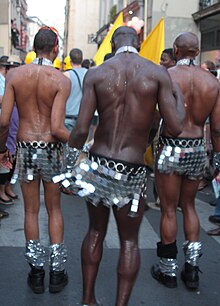Efforts to change sexual orientation

Sexual orientation change efforts are methods that aim to change a same-sex sexual orientation. They may include behavioral techniques, cognitive behavioral therapy, reparative therapy, psychoanalytic techniques, medical approaches, and religious and spiritual approaches.
No major mental health professional organization sanctions efforts to change sexual orientation and virtually all of them have adopted policy statements cautioning the profession and the public about treatments that purport to change sexual orientation. These include the American Psychiatric Association, American Psychological Association, American Counseling Association, National Association of Social Workers in the US, the Royal College of Psychiatrists, and the Australian Psychological Society.
In 2009, the American Psychological Association Task Force on Appropriate Therapeutic Responses to Sexual Orientation conducted a systematic review of the peer-reviewed journal literature on sexual orientation change efforts (SOCE) and concluded:
Efforts to change sexual orientation are unlikely to be successful and involve some risk of harm, contrary to the claims of SOCE practitioners and advocates. Even though the research and clinical literature demonstrate that same-sex sexual and romantic attractions, feelings, and behaviors are normal and positive variations of human sexuality, regardless of sexual orientation identity, the task force concluded that the population that undergoes SOCE tends to have strongly conservative religious views that lead them to seek to change their sexual orientation. Thus, the appropriate application of affirmative therapeutic interventions for those who seek SOCE involves therapist acceptance, support, and understanding of clients and the facilitation of clients' active coping, social support, and identity exploration and development, without imposing a specific sexual orientation identity outcome.
In 2012, the Pan American Health Organization (the North and South American branch of the World Health Organization) released a statement cautioning against services that purport to "cure" people with non-heterosexual sexual orientations as they lack medical justification and represent a serious threat to the health and well-being of affected people, and noted that the global scientific and professional consensus is that homosexuality is a normal and natural variation of human sexuality and cannot be regarded as a pathological condition. The Pan American Health Organization further called on governments, academic institutions, professional associations and the media to expose these practices and to promote respect for diversity. The World Health Organization affiliate further noted that gay minors have sometimes been forced to attend these "therapies" involuntarily, being deprived of their liberty and sometimes kept in isolation for several months, and that these findings were reported by several United Nations bodies. Additionally, the Pan American Health Organization recommended that such malpractices be denounced and subject to sanctions and penalties under national legislation, as they constitute a violation of the ethical principles of health care and violate human rights that are protected by international and regional agreements.
The National Association for Research & Therapy of Homosexuality (NARTH), which described itself as a "professional, scientific organization that offers hope to those who struggle with unwanted homosexuality," disagreed with the mainstream mental health community's position on conversion therapy, both on its effectiveness and by describing sexual orientation not as a binary immutable quality, or as a disease, but as a continuum of intensities of sexual attractions and emotional affect. The American Psychological Association and the Royal College of Psychiatrists expressed concerns that the positions espoused by NARTH are not supported by the science and create an environment in which prejudice and discrimination can flourish.
Comments
Post a Comment